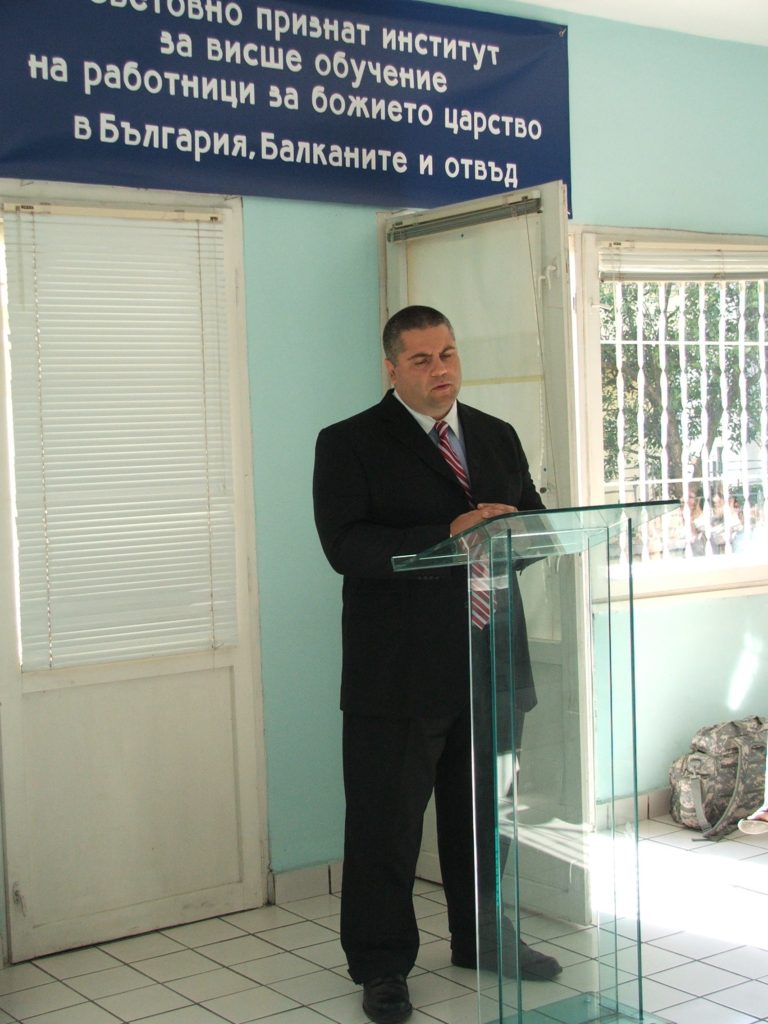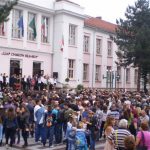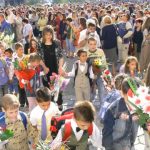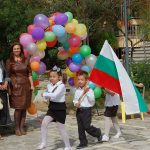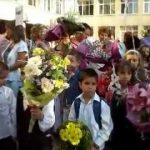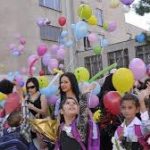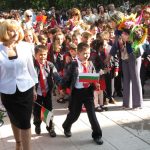Addressing the Masters of Chaplaincy Ministry Program Graduating Class in Bulgaria
Bulgaria set for snap election as president appoints interim government
Bulgaria’s new president called an early national election for 26 March and appointed a former parliamentary speaker as caretaker prime minister until then.
Ognyan Gerdzhikov, 70, currently a professor of law and head of an arbitration court, served as speaker of parliament in a centrist government from 2001 to 2005 and is now the country’s interim prime minister until the March elections. Kiril Ananiev, 61, currently a deputy finance minister in charge of budgets, will take over as finance minister, two sources familiar with the matter told Reuters. Ananiev is seen as a safe pair of hands, having served as deputy finance minister in five different governments. The appointments show that President Rumen Radev, who took office this month after winning an election with the backing of the opposition Socialists, is seeking continuity and balance, analysts said.
Political row in Bulgaria over European Parliament migration resolution
Bulgaria’s largest parliamentary party GERB and the nationalist Patriotic Front coalition have launched verbal attacks on the opposition Bulgarian Socialist Party and the Movement for Rights and Freedoms, saying their MEPs backed a European Parliament resolution that effectively encourages illegal migration.
The 93-point resolution on human rights and migration in third countries was adopted by the European Parliament on October 25.
At a news briefing in the National Assembly, GERB MP Galia Zaharieva quoted extracts from the EP resolutio on the need “to avoid creating separate districts for migrants, by promoting inclusion and the opportunity to take up all the social opportunities on offer”; and that the EP “considers that migration is recognised globally as being a powerful tool for sustainable and inclusive development.”
Zaharieva said that the resolution indicated that migration was beneficial. At the same time, she hit out at the opposition parties, including the BSP, for being critical about the Bulgarian government’s handling of migration and she accused the opposition of being alarmist in making false claims about the migration situtation in Bulgaria.
Valeri Simeonov, co-leader of the nationalist Patriotic Front, a minority partner in the coalition government arrangement, said that the BSP and MRF MEPs who had backed the resolution should be withdrawn from their posts and replaced by others further down the lists.
Simeonov said that the EP resolution had been adopted by 339 to 333 votes, meaning that the votes of the Bulgarian MEPs had been crucial to it being approved. He described the resolution as “dangerous and harmful” to Bulgaria because the country was at the forefront “of this new war with migration”.
“We cannot accept as normal that, with furious anger and enthusiasm and the aggressive egomania of a rising folk music singer, the leader of the BSP travels Bulgaria, inspiring fear and terror in people that a refugee camp will be opened in every village, and at the same time, the representatives of the same party stand shoulder to shoulder, hand in hand, with the MRF to vote for a decision so harmful and dangerous to Bulgaria,” Simeonov said.
BSP leader Kornelia Ninova said that her party distanced itself from the resolution, which she described as inconsistent with the BSP’s policies. The MEPs would be asked next week to explain to a meeting of the BSP executive bureau why they had supported the resolution, Ninova said.
The row comes just more than a week before Bulgarians go to the polls in the first round of presidential elections, in which nationalists and socialist candidates have sought to make illegal migration and refugees a campaign issue.
Cooking Traditions of Bulgaria, First Edition is NOW on SALE in Limited Print
This cookbook features authentic recipes in attempts to further the tradition of keeping alive century old recipes of Bulgarian cuisine. Here you can learn how to make dishes from moussaka to baklava and others in between. The variety of tastes of authentic Bulgarian foods is much desired and the chosen recipes are easy to follow.
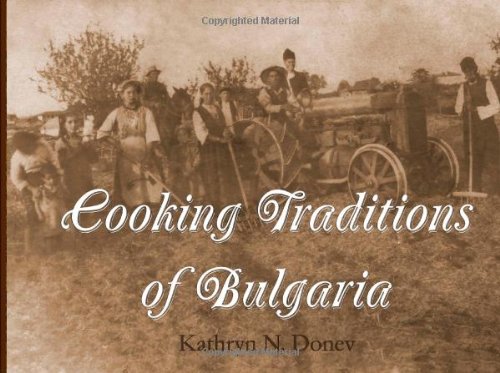
Go to amazon to see the table of contents and purchase
or purchase directly form CreatSpace eStore here: https://www.createspace.com/3890623
FIRST EDITION, 2012
Copyright © February, 2012 by Dony & Kathryn Donev
Cooking Traditions of Bulgaria
© 2012, Spasen Publishers, a division of www.cupandcross.com
ALL RIGHTS RESERVED under international and Pan-American Copyright Convention. Printed in the United States. This book contains material protected under International and Federal Copyright Laws and Treaties. Any unauthorized reprint or use of this material is prohibited. No part of this book may be reproduced or transmitted in any form or by any means, electronic or mechanical, including photocopying, recording, or by any information storage and retrieval system without express written permission from the author(s)/publisher.
Bulgaria Elects a Socialist President Again
 As we have previously proposed, this puts Bulgaria back on the “Red Light of 25 Years of Communism…” as in 2013 and 2014.
As we have previously proposed, this puts Bulgaria back on the “Red Light of 25 Years of Communism…” as in 2013 and 2014.
A socialist general from the Bulgarian Air Forces took by surprise the recent presidential elections winning +60% of the vote. He has already declared his pro-Russian preference asserting Bulgaria may pull out from NATO and the European Union.
As soon as loosing the elections, the ruling political party resigned the government early Monday morning. Bulgaria’s constitution now demands that the president gives mandate to the opposing Socialist Party, who will reject it due to insufficient presence in Bulgaria’s Parliament. The president then returns a second mandate to the ruling party, which they claim will turn down promptly.
A temporary government is then to be formed by the President and current Parliament, as it was the case in 2013 and 2014. In term, the democrats will hope to win with majority the new parliamentarian elections in 2017, which will be the 11th consecutive government elections in Bulgaria for the past 11 years since 2005:
2005 Parliamentary Elections
2006 Presidential Elections
2007 Municipal Elections
2009 Parliamentary Elections
2009 European Parliament elections
2011 Presidential Elections
2011 Local Elections
2013 Early parliamentary elections
2014 Early Parliamentary Elections
2015 Municipal Elections
2016 Presidential Elections
What does all this mean for the Church in Bulgaria?
Unstable political situation in Bulgaria with pro-Russian policies proposes a problem for the ministry of virtually all Protestants in the country. With a great probability to be voted in through a pro-Socialist government, a newly proposed legal measure bans any and all foreign organizations, companies and citizens from providing funding or donating to Bulgarian religious denominations. This would ban not only foreign physical and legal entities from funding Bulgarian religious institutions, but also companies with foreign ownership that are legally registered in Bulgaria. Using state funding for “illegal activities” by religious denominations will be sanctioned with prison terms of 3-6 years.
With these sanctions in mind, the new legal measure embodies the following rationale:
- Churches and ministers must declare all foreign currency money flow and foreign bank accounts
- Participation of foreign persons in the administration of any denomination is strictly forbidden
- Foreign parsons shall not be allowed to speak at religious meetings in any way shape or form especially religious sermons
- Anonymous donations and donorship to religious organization is not permitted
- Bulgarian flag shall be present in every temple of worship
- The new measure will block all foreign interference in the faith confessions and denominations in Bulgaria
Christmas Book Sale: Psychological Exploration of Communist and Post Communist Bulgaria
In the past five years since 2011, we have authored over two dozen books related to our ministry and mission work in Eastern Europe. As several of the prints are now almost exhausted and second/third editions and several new titles are under way, we are releasing all currently available editions in a Christmas sale through the month of December. All titles are available at up to 30% off and Amazon offers free shipping and extra savings for bundle purchases.
Our book available on sale today is:
Psychological Exploration of Communist and Post Communist Bulgaria
Silence in the face of evil is itself evil: God will not hold us guiltless.
Not to speak is to speak. Not to act is to act.
~Dietrich Bonhoeffer
 Surrounded with insecurity and uncertainty, the Bulgarian Evangelical believer finds great hope and comfort in the fact that God holds the future in His hands. Christianity is a reality that is certain. While having lived in a culture of oppression and persecution, the Bulgarian Evangelical believer now can trade a downtrodden spirit for one of triumph. The once atmosphere of turmoil is being transformed to one of liberation in the Spirit where chains of slavery are traded for a crown of joyous freedom. Living in the 21st century in a context of post communist and postmodern transformations, Bulgarian Evangelical believers must remain true to their historical heritage and preserve their identity in order to keep their faith alive. This unique testimony must be passed on to future Bulgarian generations by telling the story of the true Pentecostal experience.
Surrounded with insecurity and uncertainty, the Bulgarian Evangelical believer finds great hope and comfort in the fact that God holds the future in His hands. Christianity is a reality that is certain. While having lived in a culture of oppression and persecution, the Bulgarian Evangelical believer now can trade a downtrodden spirit for one of triumph. The once atmosphere of turmoil is being transformed to one of liberation in the Spirit where chains of slavery are traded for a crown of joyous freedom. Living in the 21st century in a context of post communist and postmodern transformations, Bulgarian Evangelical believers must remain true to their historical heritage and preserve their identity in order to keep their faith alive. This unique testimony must be passed on to future Bulgarian generations by telling the story of the true Pentecostal experience.
Obama, Marxism and Pentecostal Identity
Time and time again in the past several years, while ministering in churches across the United States, friends and partners ask us about our opinion on the political situation at home and around the world. Many of them ask the direct question of America becoming more and more socialist-like. Our response is that while people have the right to own a business, there cannot be communism, but this barely scratches the surface.
“Looking over the Wall” answers this and many other important questions about the current global reality from a very distinct Pentecostal and the same time post communist point of view. Yet, the text does it in a way, which can actually relate to popular American culture and current economic reality. The book provides Christian answers as of what defines our identity and makes us human – a right communism strips from the persona, the family and the church without much regard of the consequences that follow.
But this drastic dehumanization has an almost irreversible effect on the human psyche – a slavery mentality that penetrates the very heart of men and women and leaves forever its mark of fear, depression and insecurity. The book traces how Pentecostalism as faith and ideology has the power to deliver post communist communities from the grasp of oppressive governments and transform them into a socially relevant culture changing force. At the same time, it remains a warning to theologians who dare to flirt with Marxist idealism being fulfilled in the context of the New Testament ecclesia. And rightfully so!
The book is a must read for any and all who are ministering or planning to minister in a post communist culture or among post communist groups regardless of their geographical locale. For the principles it shows are valid for post community mentality everywhere. Preview and purchase your copy directly at Amazon.com
New socialist president-elect throws Bulgaria in a new political crisis
 As we have previously proposed, this puts Bulgaria back on the “Red Light of 25 Years of Communism…” as in 2013 and 2014.
As we have previously proposed, this puts Bulgaria back on the “Red Light of 25 Years of Communism…” as in 2013 and 2014.
A socialist general from the Bulgarian Air Forces took by surprise the recent presidential elections winning +60% of the vote. He has already declared his pro-Russian preference asserting Bulgaria may pull out from NATO and the European Union.
As soon as loosing the elections, the ruling political party resigned the government early Monday morning. Bulgaria’s constitution now demands that the president gives mandate to the opposing Socialist Party, who will reject it due to insufficient presence in Bulgaria’s Parliament. The president then returns a second mandate to the ruling party, which they claim will turn down promptly.
A temporary government is then to be formed by the President and current Parliament, as it was the case in 2013 and 2014. In term, the democrats will hope to win with majority the new parliamentarian elections in 2017, which will be the 11th consecutive government elections in Bulgaria for the past 11 years since 2005:
2005 Parliamentary Elections
2006 Presidential Elections
2007 Municipal Elections
2009 Parliamentary Elections
2009 European Parliament elections
2011 Presidential Elections
2011 Local Elections
2013 Early parliamentary elections
2014 Early Parliamentary Elections
2015 Municipal Elections
2016 Presidential Elections
What does all this mean for the Church in Bulgaria?
Unstable political situation in Bulgaria with pro-Russian policies proposes a problem for the ministry of virtually all Protestants in the country. With a great probability to be voted in through a pro-Socialist government, a newly proposed legal measure bans any and all foreign organizations, companies and citizens from providing funding or donating to Bulgarian religious denominations. This would ban not only foreign physical and legal entities from funding Bulgarian religious institutions, but also companies with foreign ownership that are legally registered in Bulgaria. Using state funding for “illegal activities” by religious denominations will be sanctioned with prison terms of 3-6 years.
With these sanctions in mind, the new legal measure embodies the following rationale:
- Churches and ministers must declare all foreign currency money flow and foreign bank accounts
- Participation of foreign persons in the administration of any denomination is strictly forbidden
- Foreign parsons shall not be allowed to speak at religious meetings in any way shape or form especially religious sermons
- Anonymous donations and donorship to religious organization is not permitted
- Bulgarian flag shall be present in every temple of worship
- The new measure will block all foreign interference in the faith confessions and denominations in Bulgaria
New Law in Bulgaria Bans Women from Wearing Veils
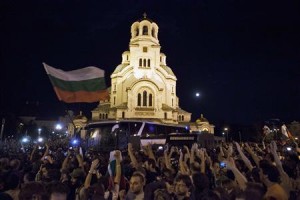 SOFIA, Bulgaria (AP) — Bulgaria’s Parliament has approved a law banning women from wearing veils that cover their faces in public.
SOFIA, Bulgaria (AP) — Bulgaria’s Parliament has approved a law banning women from wearing veils that cover their faces in public.
Bulgaria, a Balkan country of 7.2 million people, has a Muslim minority of about 10 percent. Similar bans have been approved in other EU countries such as France, Netherlands and Belgium.
The law was pushed by the nationalist Patriotic Front coalition citing security reasons for it, saying “the burqa is more a uniform than a religious symbol.” The law was opposed by the Movement for Rights and Freedoms, the third-largest party in Parliament, which has a substantial Muslim electorate. In protest, the group walked out of Parliament. Women who violate the ban face fines of up to 770 euros ($860), as well as a suspension of social benefits.
September 15: First Day of School in Bulgaria
- OLYMPUS DIGITAL CAMERA
Bulgaria to ban all foreign preachers
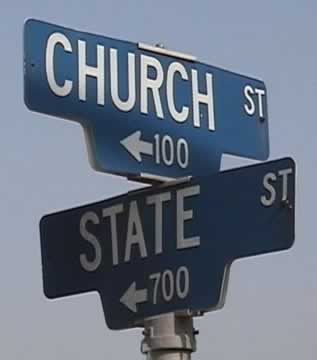 The Patriotic Front, a newly established political formation in Bulgaria, filed changes to the 2002 Religious Dominations Act last Thursday. The new measure bans all foreign citizens from preaching on the territory of Bulgaria, as well as preaching in any other language than Bulgarian.
The Patriotic Front, a newly established political formation in Bulgaria, filed changes to the 2002 Religious Dominations Act last Thursday. The new measure bans all foreign citizens from preaching on the territory of Bulgaria, as well as preaching in any other language than Bulgarian.
The draft amendments also foresee banning foreign organizations, companies and citizens from providing funding or donating to Bulgarian religious denominations. All the religious denominations in Bulgaria will be obliged to perform their sermons, rituals and statements only in Bulgaria. One year’s time will be given to translate religious books into Bulgarian.
Financially, the draft laws would ban not only foreign physical and legal entities from funding Bulgarian religious institutions, but also companies with foreign ownership that are legally registered in Bulgaria. Using state funding for “illegal activities” by religious denominations will be sanctioned with prison terms of three to six years. With these sanctions in mind, the new legal measure embodies the following rationale:
- Churches and ministers must declare all foreign currency money flow and foreign bank accounts
- Participation of foreign persons in the administration of any denomination is strictly forbidden
- Foreign parsons shall not be allowed to speak at religious meetings in any way shape or form especially religious sermons
- Anonymous donations and donorship to religious organization is not permitted
- Bulgarian flag shall be present in every temple of worship
- The new measure will block all foreign interference in the faith confessions and denominations in Bulgaria


